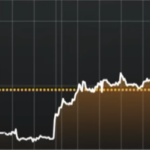The Roman emperors called themselves gods. The gods were men, and the men were like fathers to their nations. Hence the later term “The Father-State,” which became a thorn in the side of feminists and anti-nationalists after 1968. The fight of the son against the father described by Sigmund Freud, nowadays of the left-green scene against the state, found its expression in the term “Mutti” in reference to the German Chancellor, who had no children, which she compensated by taking in thousands of “children” from all over the world. Thus, intentionally or subconsciously, both terms “father” and “mother” became unwords. The future belongs after all to the “children”, the X and Y and other letter salad like L, G, B, T, Q.
There are so many scandals in the EU and among German politicians who wrote their diploma and doctoral theses in droves using “cut” and “paste” that the general public no longer even reacts to them. The word “scandal” now sounds like “normal.” EU vice president’s suitcase full of money? A German minister resigns from her post because she has no qualifications for it? Boring to the point of yawning. The brain naturally resists the boredom, the repetitive information and starts to stop reacting to the scandals. The boredom is compensated by new challenges.
In former times one said: throw away garbage. Today: dispose of garbage. Garbage is a problem? No, garbage is a challenge. In modern language, in the modern world, there are no problems, there are only ever greater challenges. Be it climate change, energy crisis. Well, Putin is maybe the last problem that needs to be disposed of.
The state has higher and higher expenses. But they are not a problem, they are a challenge. The citizen has been told so much for decades about inflation, mountains of debt of the state, of countries that went bankrupt because they and their complicit citizens didn’t want to save, that he doesn’t even react anymore in the face of new expenditures – for weapons to a foreign country as nowadays or for the banks of a foreign country as in the past (bailouts). The concept of debt became tolerable because the state pays its debts and challenges of today with our money, the money of our children and our grandchildren. And we save, save and lose, lose on our accounts.
How do you react now to the term “virus” and “a new wave” and how did you react to them two years ago? These terms also suffered profound inflation. They depreciated as our savings did in the last few years.




